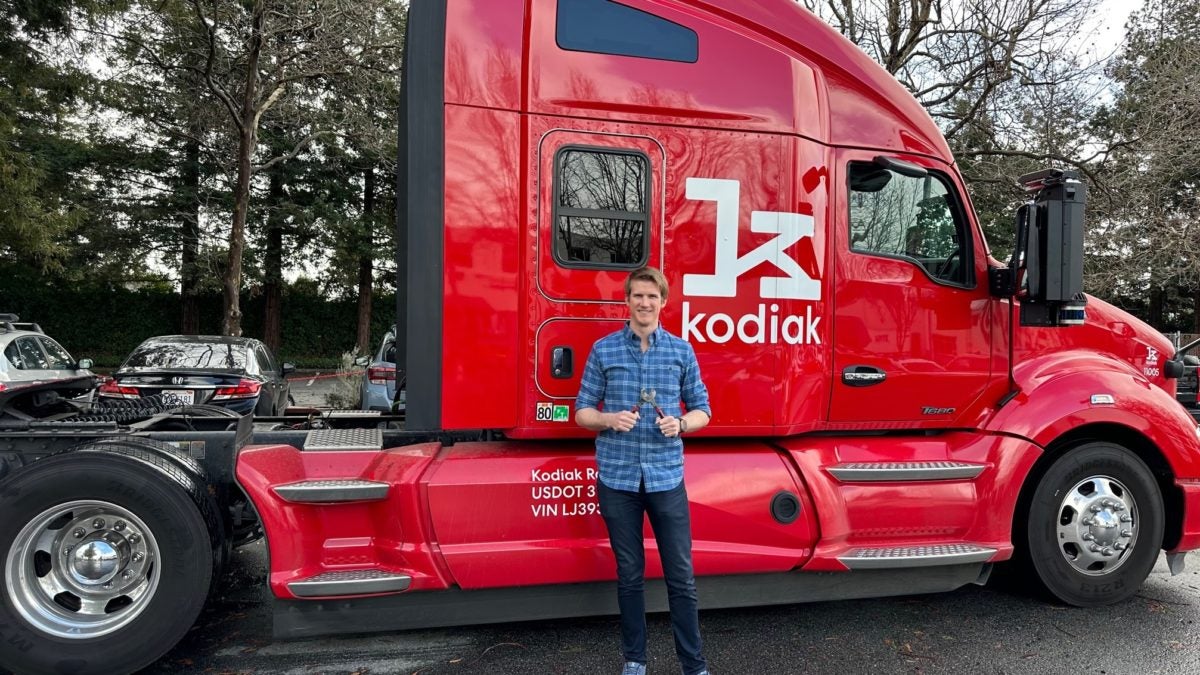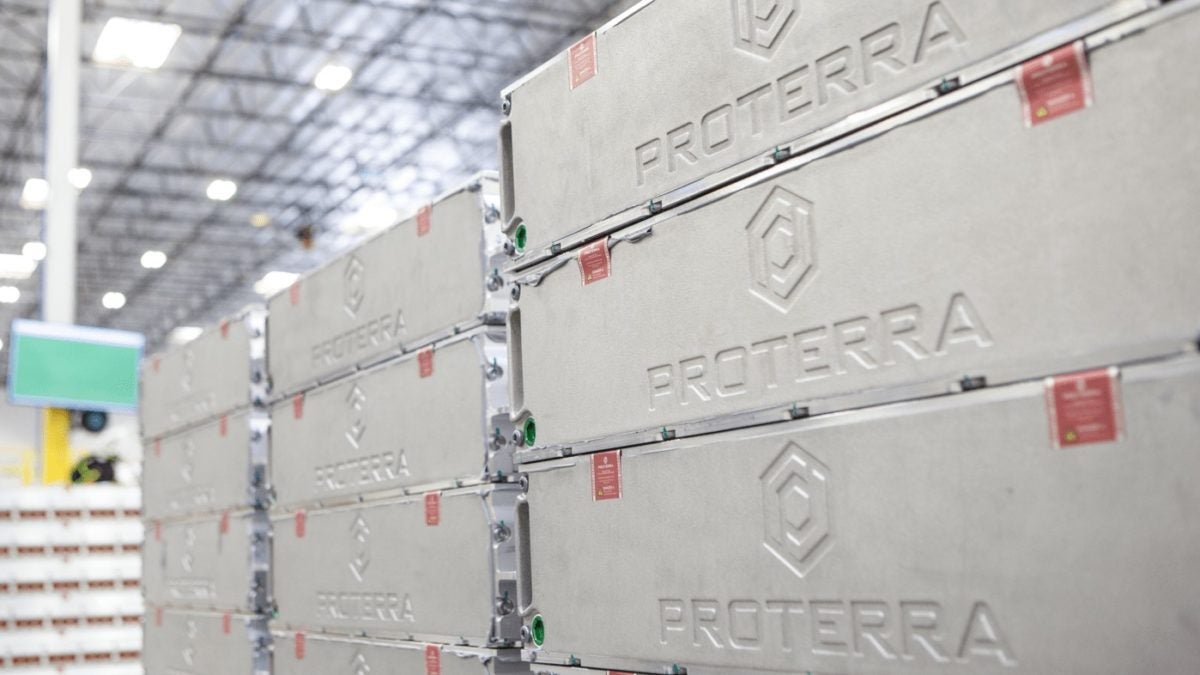The meltdown of transportation SPAC valuations is unrelenting. Here’s the story of one thriving autonomous trucking developer that stayed out of the rush-to-go-public frenzy.
Kodiak Robotics’ peace of being private
One autonomous trucking developer ignored the FOMO (fear of missing out) on the SPAC frenzy of 2020 and 2021. With valuations cratering for most companies that went public via special purpose acquisition companies, Kodiak Robotics is looking pretty smart.
It is hiring strategically rather than shedding employees. It completed a $125 million Series B capital raise in November 2021. And it is deepening relationships with potential customers in its Partnership Development Program. The U.S. Army awarded a $49.9 million contract to use the same Kodiak technology that will eventually hit the highway commercially.
“From an investor perspective and from a team morale perspective, we’re really glad that we stayed private,” co-founder and CEO Don Burnette told me during a visit to company headquarters in Mountain View, California, earlier this month.
‘Don’t have the metrics’
“It’s the right decision because we don’t have the metrics that public investors are looking for in the market,” he said. “Part of the calculus that any company has to consider when they go public, whether that’s through a SPAC or an IPO — it doesn’t have to be 100% — but it really should be your last [capital] raise.”
In the current market, tech layoffs occur practically daily. Venture capitalists have moved to the sidelines on down rounds in all but the choicest of their portfolio companies. The opportunity to secure more money is becoming increasingly difficult.
Plenty of SPAC sponsors raised big money to entice young transportation companies to go public. Burnette fielded his share of phone calls.

‘Clock is ticking’
“And it was a lot of money,” he told me. “But could we really confidently say that’s all the money we’re ever going to need? And the answer was, ‘That seems too much of a risk to me.’ Other companies made a different decision, and now the clock is ticking.”
Actually, time has run out for some, though none in the autonomous space — yet. Most recently, electric chassis converter XL Fleet was acquired by the Shyft Group. Battery pack maker Romeo Power was rescued from failure by one of the earliest SPAC companies, Nikola Corp. That merger’s travails are familiar to FreightWaves readers.
“Can public companies raise money in these markets at these valuations or are they going to make some drastic changes to the structure of their company?” Burnette asked. “They’re now faced with that decision. I think that type of outcome was somewhat inevitable from our perspective. And therefore we made the decision that we’re better in the private markets.”
Reverse splits to boost share prices
As recently as November, according to Bloomberg, almost 170 members of the Nasdaq Composite Index conducted reverse stock splits to get their share prices up. In the autonomous space, Embark Trucks did a 1-for-20 split in August. Aurora Innovation was forced to wipe $1 billion from its balance sheet because it counted on a higher share price than it realized.
Twelve times more companies conducted reverse splits through November than executed a forward split, trading one share for more than one, according to data compiled by Bloomberg.
“In the public markets, there are two primary mechanisms,” added James Reed, Kodiak’s new chief operating officer and former CEO of USA Truck. “One is financial earnings. The other is a secular trend of growth. AV companies don’t have either of those metrics right now because it’s too early in the stage. Nobody’s done with the product yet.”
Proterra will shed 300 jobs in consolidation of buses and batteries in South Carolina
Proterra Inc., the electric bus maker that went public 18 months ago via SPAC for $640 million in cash and to gain attention for its batteries and infrastructure businesses, is combining battery and bus production in South Carolina.
A week after Proterra announced production of its first commercial battery pack at a new plant in South Carolina, the company said Thursday it is leaving the plant it opened in 2017 in City of Industry, California.
The Palmetto State consolidation and other cost-cutting actions will result in the loss of about 300 jobs by the end of the year.
“The consolidation of manufacturing sites will also allow the company to better manage ongoing supply-chain disruptions and decrease facilities costs,” Proterra said in a statement.
Also on Thursday, Proterra filed a preliminary registration with the Securities and Exchange Commission to sell up to $500 million in new common or preferred stock or other debt.
Proterra (NASDAQ: PTRA) shares closed 6.51% lower Thursday at $4.74 after trending higher for most of January. The company’s stock has swung between $3.47 and $9.20 over the last year.

Best of the rest …
Nikola Corp. is going mobile with hydrogen refueling, introducing a portable unit that can take fuel to its fuel cell trucks when they hit the market later this year. The electric truck startup took a similar approach to its battery-electric trucks. It leased a small number of Tritium-made chargers in a trailer to early buyers while an in-ground charging infrastructure comes on line.
Autonomous startup Wabbi is getting an undisclosed investment from Volvo Venture Capital Group AB. Wabbi uses advanced artificial intelligence technology to test, assess skills and ultimately teach a virtual driver to maneuver safely and efficiently in a commercial-ready autonomous trucking solution. Volvo Group has a partnership with Aurora Innovation to develop a robot-driven version of its long-haul VNL.
Oregon State University’s College of Engineering is helping Daimler Truck North America develop its Department of Energy-funded Super Truck 3 — a Class 8 fuel cell electric truck with a 600-mile range, a 25,000-hour cell life and a payload capacity equal to a diesel truck. Daimler sees hydrogen-powered trucks as a second-half-of-the-decade project. It is working with Cummins Inc. to integrate the engine maker’s fuel cell in trucks. And it is a 50-50 partner with Volvo Group in cellcentric, a fuel cell joint venture. Both companies have shown prototypes.
Mack Trucks showed a freshened version of its Mack Granite at the World of Concrete trade show this week. The vocational truck features a modernized fascia with an updated chrome grille and self-heating LED headlamps. They offer brighter illumination, improving forward visibility by up to 29% and peripheral visibility by up to 50%.

Briefly noted …
Knight-Swift Transportation recently became the first major U.S. fleet to take delivery of a zero-emissions Kenworth T680E Class 8 battery-electric vehicle.
Paccar will integrate Platform Science’s Virtual Vehicle in Kenworth and Peterbilt trucks. The open OEM platform enables fleets to access telematics, software solutions, real-time vehicle data and third-party applications directly from their vehicles.
ACT Research reports Class 8 retail sales in December rose 19% year over year to an all-time record 34,415 units. The strong finish to the year led to a total of 309,615 units sold in 2022.
A record number of deliveries in December pushed 2022 Class 8 retail sales above 300,000. (Source; ACT Research)
That’s it for this week. Thanks for reading. Click here to get Truck Tech via email on Fridays and tune in to Truck Tech on FreightWaves TV Wednesday at 4 p.m. EST.







